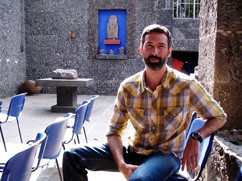The UA Poetry Center will showcase faculty members Aurelie Sheehan and Farid Matuk this Thursday with a reading of their works followed by a question-and-answer session.
Focusing mostly on fiction, Sheehan is the author of two novels and two short story collections. This UA faculty member has been teaching at the university since 2000 and is currently teaching fiction.
Sheehan studied creative writing at Hampshire College and earned an master’s degree in fiction at The City College of New York.
Sheehan said that during her reading, she plans on sharing work from her newest book, “Jewelry Box: A Collection of Histories,” which includes 58 short pieces.
The pieces vary in length from short paragraphs to pages, and were inspired by household objects and overlooked concepts.
“[Each piece begins] with an object or a concept that might seem mundane at first glance — a tube of mascara, a cat’s tail, mushroom pate — but offer a very personal and idiosyncratic ‘history’ just under the surface,” Sheehan said in an email. “This particular project straddles fiction and memoir. It uses the concept of history, but with flights of fancy.”
Matuk said he took his first creative writing course at a workshop two years after he finished college. With the experience he had gained from the workshops and his own personal drive, Matuk was accepted into numerous graduate programs.
A few weeks after Matuk began graduate school in 2001, the World Trade Center was attacked.
“It seemed like a sign to grow up and take my country and my peoples seriously, so that’s what I’ve been trying to do ever since,” Matuk said via email.
Matuk said he will read from his newest collection of poems, “My Daughter La Chola.” The poems are addressed to his daughter, who is almost three years old.
“I guess, like most parents, I feel responsible for having helped bring my daughter into a difficult world,” Matuk said. In his work, Matuk exposes racial violence and civil injustice that the U.S. faces, and how this relates to the world his daughter is growing up in.
In his collection, Matuk tells the story of a woman named Martina Espinoza, who was made a scapegoat for the actions of a Latino outlaw in 1875, which resulted in a series of lynchings and executions in her community.
“One of the things I love about poetry is that, when you’re listening to it or reading it, your attention can float across different positions, you can imagine yourself to be the one addressed and the one (or ones) speaking,” Matuk said. “That’s a pretty nice loosening up of our habituated, disciplined, striving and marketable selves. So yeah, I hope people get loose.”
Cybele Knowles, the Poetry Center’s program director, said faculty readings like these are as much for the faculty involved as they are for the attendees, as they can bring exposure to writers who work on campus every day.
“We just want everyone in Tucson at the university and the outside community to be aware of what amazing writers and poets we have on our faculty,” Knowles said. “We obviously know them as our teachers and mentors and people really important in shaping our ideas of what powerful and good writing is.”
Follow Casey Knox @Knox_Casey









